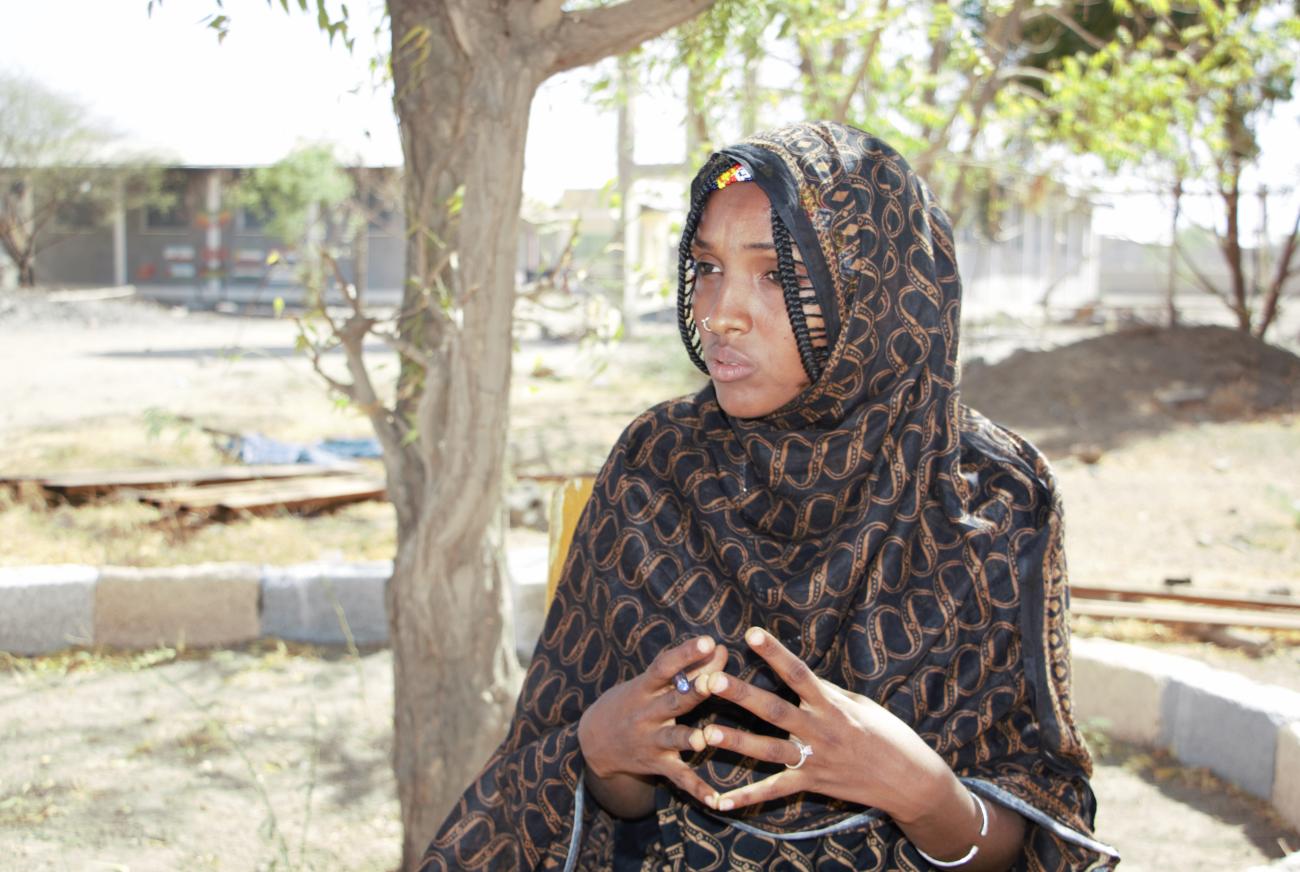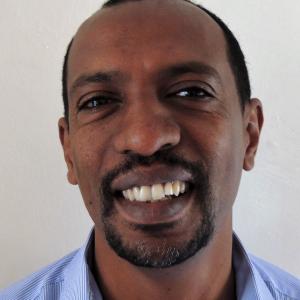Educating girls is educating the community

Seventeen year-old Asiah Hagere Momin who hails from the Hadel Ella District in Zone 5 of the Afar Region in Ethiopia.
Asiah considers herself very lucky that she is among the students attending a boarding school located in Semera, capital of the region. She has been studying in the school for the past five years and is currently in the 10th grade.
Asiah is among the close to 150 students enrolled in the Semera Girls’ Boarding School which was opened in 2010. The school is run by female staff enrolling female students coming from all the 32 districts of the Afar Region from grade 5 up to 12. The students are provided with accommodation and feeding, sanitary pads, and school materials during their stay in the school.
“Educating girls is educating the community,” says Asiah with an air of confidence echoing what is posted everywhere in her school compound. She thanks her aunt – who was among the first batches of the school – for convincing her parents to send her to the school. Asiah is happy that things are very different here from what she was used to during her early school years at home. She and her schoolmates are now full time students not bothered by the onerous household chores which busied them when they were living with their parents making it difficult to focus on their studies thereby affecting their academic performances. She also likes the fact that it is an all-girls school boosting their independence and confidence.
Fighting child marriage and FGM in an integrated manner
Child marriage and FGM heavily impact the lives of women and girls. These harmful practices are deeply rooted in social and gender norms hindering these sections of society from realizing their rights and potential. The Afar Region has the second highest rate of FGM in Ethiopia where 91% of women aged 15-49 are subjected to the practice. The region’s median age at first marriage is lower than the national average (16.4 years compared to 17.1 years) according to the Ethiopian Demographic and Health Survey (2016).
UNFPA started a Programme on Prevention of Child Marriage and FGM to tackle these harmful practices in an integrated manner in selected districts in the Afar Region. The programme was piloted in the Afambo District ten years ago and was later scaled-up to the Abala District in the region. This programme which is overseen by the Afar Region Women and Children Affairs Bureau has registered quite remarkable results where all the localities in the pilot district publicly declared abandonment of both harmful practices.
UNFPA is supporting the Semera Girls’ Boarding School whose operations is partly funded by the UN Association in Sweden as part of the integrated programme.
Rekindling hopes of young girls
“Had I stayed in my place of origin, I would have been married off and given birth by now,” says Asiah. She recalls that she used to be challenged by her parents who wanted to marry her off when she was going home for her two months school breaks during the summer. But eventually she managed to convince her parents to let her finish her education up to the college level. She credits her participation in the discussions in the Unmarried Girls’ Club and other clubs run in her school for the awareness she got on the harms of child marriage and FGM which gave her the ammunition to convince her parents to delay her marriage. But she admits that there is a long way to go as the tradition is deep rooted.
Asiah wants every girl in Afar Region to get the opportunity that she got so that they can make a difference in their lives. She suggests that it would be good if tutorial classes are started in her school in addition to what is being provided so that the academic performance of the students improves better.
She plans to study medicine and go back to her community to support them with her profession.
Educating girls is educating the community
Semera, AFAR REGION - ETHIOPIA: Seventeen year-old Asiah Hagere Momin who hails from the Hadel Ella District in Zone 5 of the Afar Region in Ethiopia considers herself very lucky that she is among the students attending a boarding school located in Semera, capital of the region. She has been studying in the school for the past five years and is currently in the 10th grade.
Asiah is among the close to 150 students enrolled in the Semera Girls’ Boarding School which was opened in 2010. The school is run by female staff enrolling female students coming from all the 32 districts of the Afar Region from grade 5 up to 12. The students are provided with accommodation and feeding, sanitary pads, and school materials during their stay in the school.
“Educating girls is educating the community,” says Asiah with an air of confidence echoing what is posted everywhere in her school compound. She thanks her aunt – who was among the first batches of the school – for convincing her parents to send her to the school. Asiah is happy that things are very different here from what she was used to during her early school years at home. She and her schoolmates are now full time students not bothered by the onerous household chores which busied them when they were living with their parents making it difficult to focus on their studies thereby affecting their academic performances. She also likes the fact that it is an all-girls school boosting their independence and confidence.
Fighting child marriage and FGM in an integrated manner
Child marriage and FGM heavily impact the lives of women and girls. These harmful practices are deeply rooted in social and gender norms hindering these sections of society from realizing their rights and potential. The Afar Region has the second highest rate of FGM in Ethiopia where 91% of women aged 15-49 are subjected to the practice. The region’s median age at first marriage is lower than the national average (16.4 years compared to 17.1 years) according to the Ethiopian Demographic and Health Survey (2016).
UNFPA started a Programme on Prevention of Child Marriage and FGM to tackle these harmful practices in an integrated manner in selected districts in the Afar Region. The programme was piloted in the Afambo District ten years ago and was later scaled-up to the Abala District in the region. This programme which is overseen by the Afar Region Women and Children Affairs Bureau has registered quite remarkable results where all the localities in the pilot district publicly declared abandonment of both harmful practices.
UNFPA is supporting the Semera Girls’ Boarding School whose operations is partly funded by the UN Association in Sweden as part of the integrated programme.
Rekindling hopes of young girls
“Had I stayed in my place of origin, I would have been married off and given birth by now,” says Asiah. She recalls that she used to be challenged by her parents who wanted to marry her off when she was going home for her two months school breaks during the summer. But eventually she managed to convince her parents to let her finish her education up to the college level. She credits her participation in the discussions in the Unmarried Girls’ Club and other clubs run in her school for the awareness she got on the harms of child marriage and FGM which gave her the ammunition to convince her parents to delay her marriage. But she admits that there is a long way to go as the tradition is deep rooted.
Asiah wants every girl in Afar Region to get the opportunity that she got so that they can make a difference in their lives. She suggests that it would be good if tutorial classes are started in her school in addition to what is being provided so that the academic performance of the students improves better.
She plans to study medicine and go back to her community to support them with her profession.
Written by



